AITA for spraying the neighborhood kids with my garden hose?
A passionate gardener’s love for strawberries blossoms into a heartfelt mission to share sweetness with the community, turning her garden into a sanctuary of generosity. Yet beneath the ripening fruit lies a growing storm of frustration, as reckless children trample her labor of love, shattering not just plants but her peace of mind.
Confronted with betrayal and disregard, she fights back not with silence but with resolve, wielding her garden hose as a shield against injustice. But when anger from parents floods her doorstep, the battle becomes not just about stolen berries, but the clash between respect, responsibility, and the price of standing one’s ground.
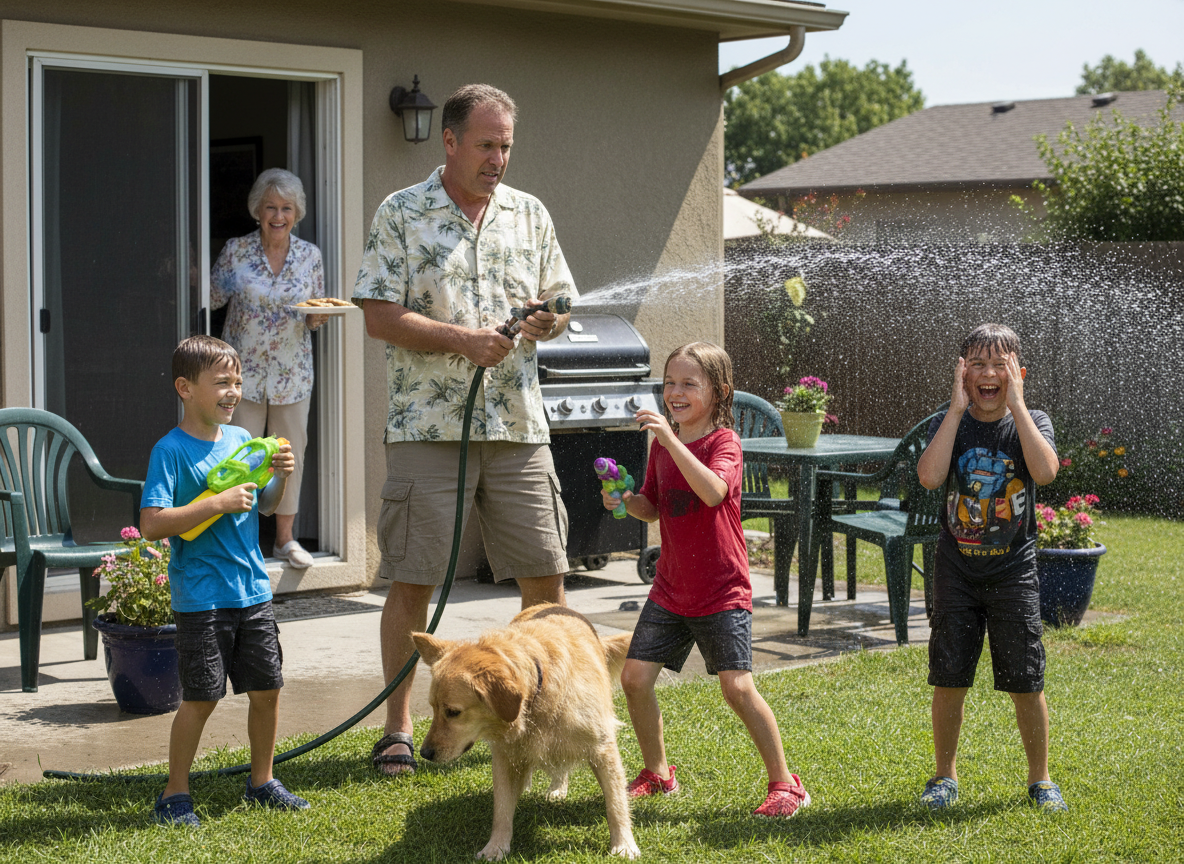

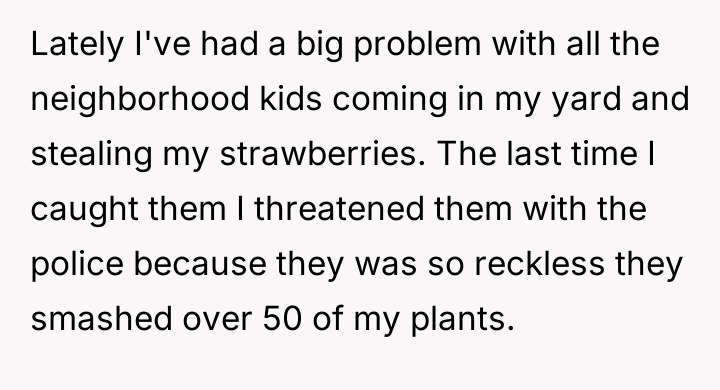
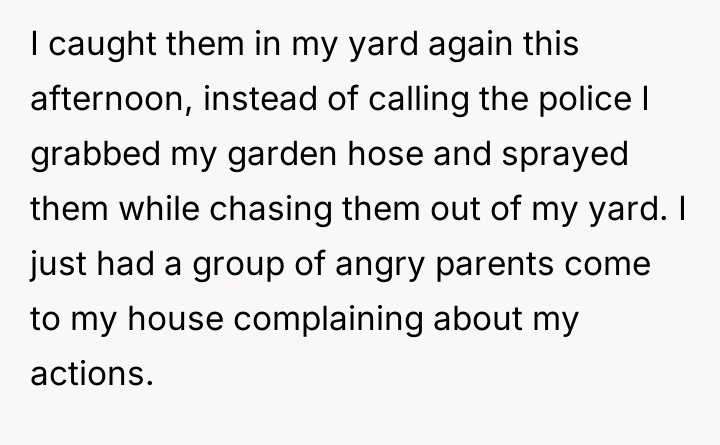
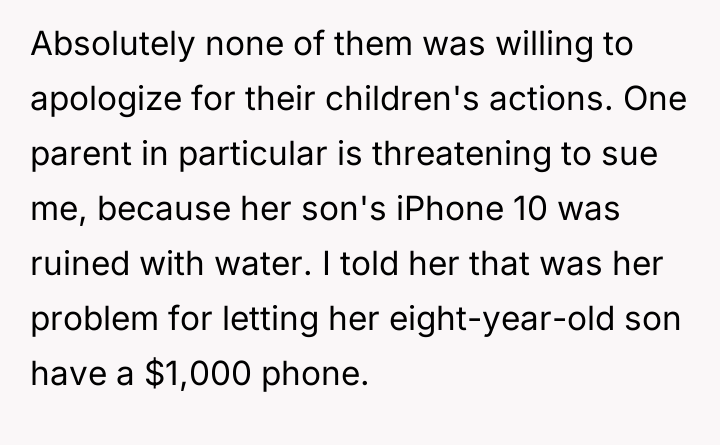

Subscribe to Our Newsletter
As renowned researcher Dr. Brené Brown explains, “Boundaries are the distance at which I can love you and me simultaneously.” This situation highlights a significant breakdown in personal boundaries and community expectations. The OP has established a clear boundary around their property and the fruits of their labor (300 plants, substantial jelly production) through their actions of cultivation and donation. When neighborhood children repeatedly violate this boundary, resulting in significant property damage (50+ plants smashed), the OP's frustration is understandable. Their initial escalation to threatening police involvement, followed by using the garden hose, represents an attempt to enforce a boundary when passive deterrence failed. However, using water force, even if intended to merely chase them away, is an aggressive physical response that invites counter-escalation, as seen with the parents' reaction and the threat of a lawsuit over a damaged phone. The parents' refusal to apologize demonstrates a failure to acknowledge their children’s trespass and negligence, shifting blame entirely onto the property owner. While the OP's frustration with the damaged iPhone is understandable—a child having an expensive device while engaging in vandalism is questionable parenting—retaliating or dismissing property damage claims without addressing the initial trespass is unproductive. A constructive recommendation is for the OP to immediately cease aggressive physical responses. Future incidents should be documented with video evidence, and the next step should involve formal, documented communication with all parents regarding trespass and liability, potentially involving formal neighborhood mediation or non-emergency police consultation regarding property crime, rather than direct confrontation. The use of force, even seemingly minor force like spraying water, moves the situation from property defense to potential assault in the eyes of the law and the complaining parents, making the OP vulnerable to liability, regardless of the children's initial wrongdoing.
AFTER THIS STORY DROPPED, REDDIT WENT INTO MELTDOWN MODE – CHECK OUT WHAT PEOPLE SAID.:
The internet jumped in fast, delivering everything from kind advice to cold truth. It’s a mix of empathy, outrage, and no-nonsense takes.
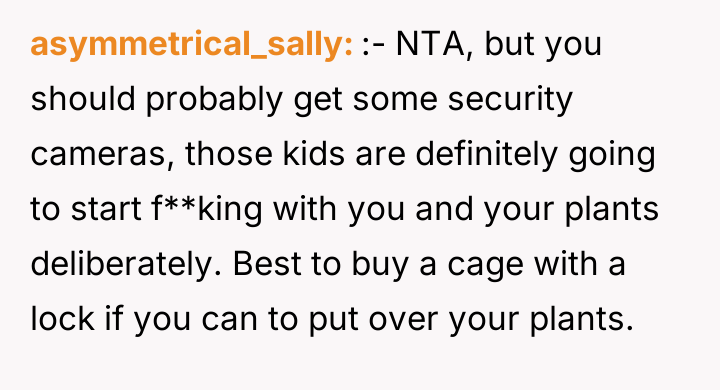
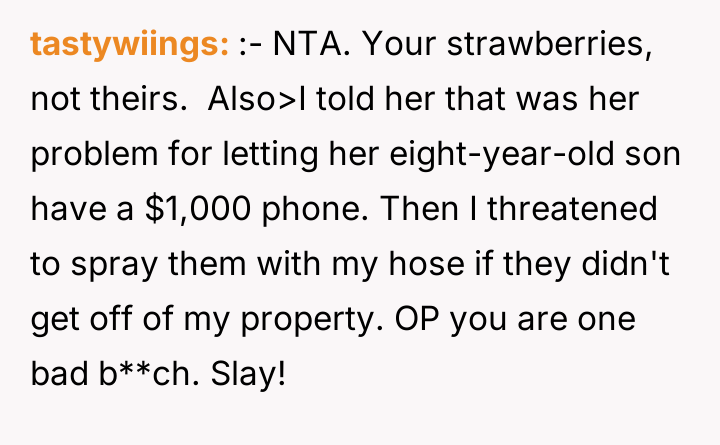
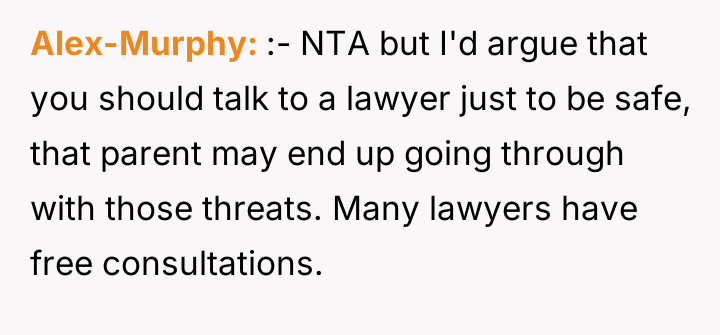

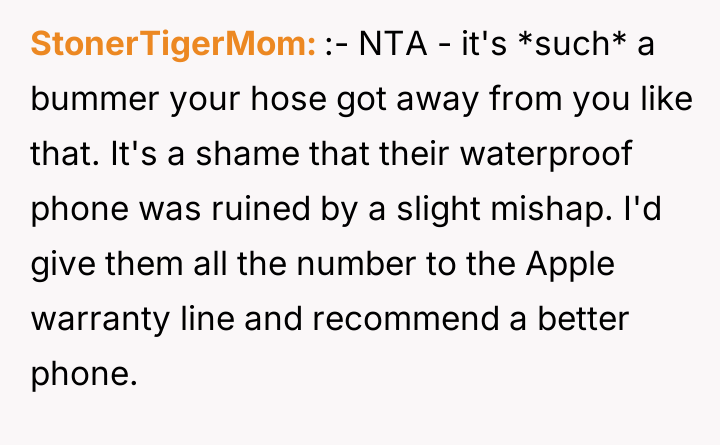





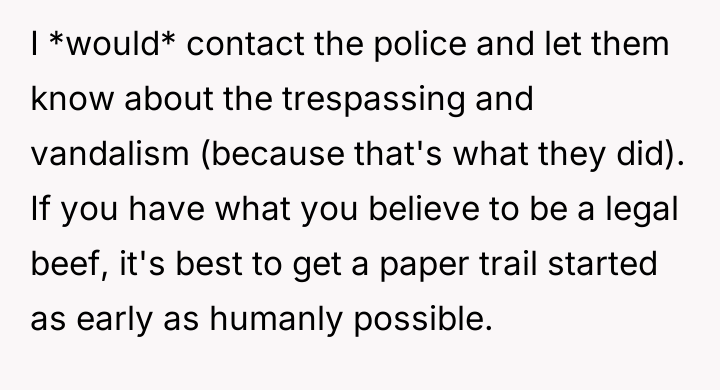
The original poster (OP) is deeply frustrated by repeated theft and property damage caused by neighborhood children raiding their extensive strawberry garden, leading to an escalation where they chose to physically repel the children with a hose rather than involving law enforcement immediately. The central conflict lies between the OP's right to protect their hard work and property and the parents' denial of responsibility for their children's destructive behavior, which has now resulted in legal threats against the OP.
Does the severity of property damage justify the use of water expulsion as a defensive measure against trespassing minors, or did the OP cross a reasonable line of force, especially considering the subsequent escalation involving property damage claims against the OP?